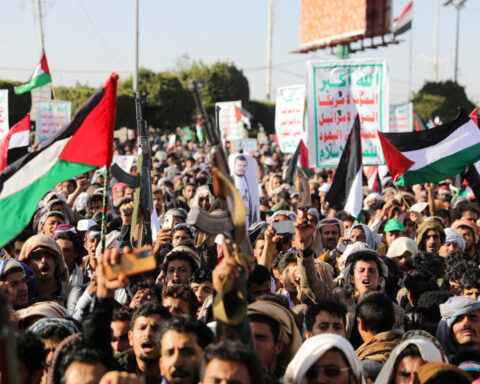BAGHDAD (Parliament Politics Magazine) – Officials cautioned Wednesday that a surprise verdict by Iraq’s high court put doubt on the legal basis of Iraq’s Kurdish-run region’s independent oil policy, threatening to force a political wedge between the two governments.
The legal justifications for the semi-autonomous region’s oil policy were ruled down by Iraq’s Supreme Court on Tuesday, thereby putting the region’s oil contracts, exports, and earnings in jeopardy.
The decision comes at a politically sensitive time in Iraq, where efforts to establish a government have stagnated.
Iraq is going through a difficult political period. At a time like this, it is unfortunate that the Federal Supreme Court of Iraq has ruled that the oil and gas law of Kurdistan region unconstitutional, causing serious concern in the Kurdistan region,” said Nechirvan Barzani, region President, on Wednesday.
According to him, the verdict “would worsen the disagreements between the Kurdistan Regional Government and the Iraqi federal government over gas and oil concerns.”
The presidential candidate of the Kurdistan Democratic Party, the Kurdish region’s primary ruling party, was prevented from running for the job by Iraq’s Supreme Court last week.
Due to charges of corruption, the court determined that Hoshyar Zebari was ineligible to run. It was a setback for populist Shiite cleric Moqtada Al-Sadr, the election’s biggest winner, who promised to quickly form a new government free of Iran-backed groups.
The PM must be a Shiite, the speaker must be a Sunni, and the presidency must be held by a Kurd, according to Iraq’s 2005 constitution. The selection of candidates is frequently hampered by political gridlock.
The reason for the verdict this week, which comes after nearly a decade of delays, was not immediately clear.
The decision on Tuesday threw uncertainty on the region’s primary source of funding.
According to Iraq Oil Report, the oil exports of the region via Turkey totaled $750 million a month in 2021. Trade debts and pay salaries , the area also needs budget transfers from Baghdad.
In a statement, the Kurdish region called the verdict “unjust, unconstitutional,” and “unacceptable.” The absence of a federal oil and gas law has long been used by the region to support its independent oil strategy.
The Iraqi constitution states that regions and provinces can have some oil independence, but that the details should be written out in a separate statute. A law like this has never been enacted.
In 2012, Baghdad initiated a lawsuit against the region’s claims. After the judge demanded that then-PM Adil Abdul-Mahdi give up on continuing the legal battle, the lawsuit was postponed in September 2019.






